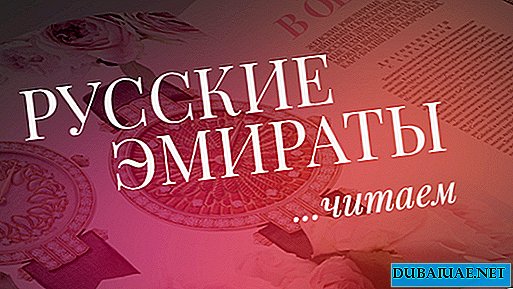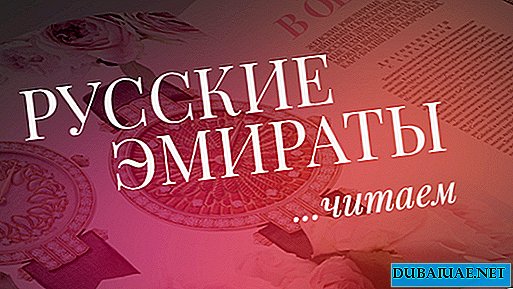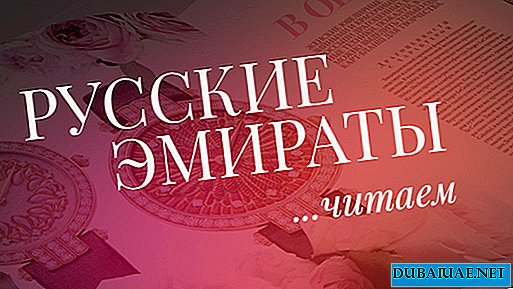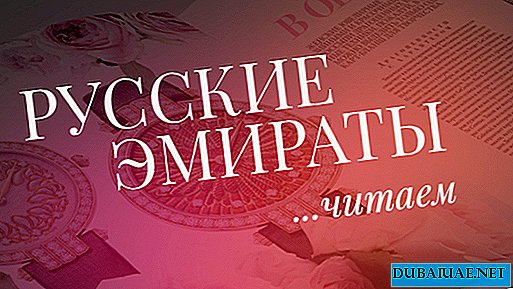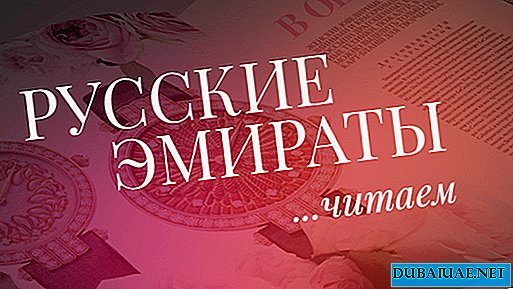In the country of watches, banks, chocolate and cheeses
 Switzerland is a small country located in the heart of Europe. But multilateral culture and magnificent nature push its boundaries. In the west of Switzerland, the “love of a beautiful life” brought from France sets the tone. The south of Switzerland is charming Italian, thanks to the influence of the Mediterranean. In the northern part of the country, the heritage of ancient German culture prevails.
Switzerland is a small country located in the heart of Europe. But multilateral culture and magnificent nature push its boundaries. In the west of Switzerland, the “love of a beautiful life” brought from France sets the tone. The south of Switzerland is charming Italian, thanks to the influence of the Mediterranean. In the northern part of the country, the heritage of ancient German culture prevails.
Thanks to its past, Switzerland is today a truly multinational country with four official languages (German, French, Italian and Romansh). The population of Switzerland consists of four ethnic groups and has 7.3 million people who live in peace and equality.
Each group is an inspiration to others. Therefore, Switzerland can be called a living example of a state in which very different cultures coexist perfectly, and in a very limited space. Switzerland grants its citizens rights that are not found in virtually any other country in the world. That is why the Swiss cherish their citizenship. This model of a modern federal state has helped Switzerland strengthen and become a highly developed industrial power and further develop as a state with a strong economy.
Since ancient times, Switzerland has attracted travelers from all over the world. International tourism flourished here back in the days of the Belle Epoque (until 1914). The beauty of the Alpine mountains has made Switzerland especially attractive for travelers. In luxury hotels, the richest people in the world and those in power have a pleasure in relaxing. Aristocrats, financial and trade tycoons, famous artists and writers, such as the Englishman Lord Byron ("Prisoner of Chillau Castle"), the American Mark Twain, the Germans - Reiner-Maria Rulke, Hermann Hesse, Karl Zikmeyer, Thomas Mann, the Russians - Sergey Rakhmaninov , Igor Stravinsky A dense network of "Russian tracks" cross Switzerland up and down.
Unnoticed by tourists ... Unnoticed by everyday life of the indigenous population ... All or almost all of the famous personalities of Russia have been here at different times. Great writers and composers lived and created their immortal works in Switzerland. Militant Cossacks fought with the French army, starving revolutionaries argued over ideology and finance. Things happened in Switzerland that fatally influenced the fate of Russia
"There are five parts of the world: Europe, Asia, America, Africa ... and Geneva!" (Talleyrand at the Vienna Congress (1814 - 1815)).
The official capital of Switzerland is Bern, but everyone is attracted by the smallest of the largest capitals - the city of Geneva. Geneva is superbly located on the shores of the largest lake in Western Europe at the foot of the Alps and Jura. Geneva has everything to charm you! She leaves no one indifferent! A witness to the rich past that lives in the present, the city is a true international capital, and is opened to visitors from a wide variety of parties.
Archaeological excavations indicate that for twelve thousand years BC, people lived in the place where Geneva is now. In the Middle Ages, Geneva was an imperial city led by a prince-bishop. The fate of Geneva changed dramatically in the 15th century under the influence of the ideas of Martin Luther. In 1536, the Republic was proclaimed and the reform adopted. Already in the XVIII century the city became a banking center, the capital of science and the press, an industrial city where rare crafts developed: the art of making watches, enamels, chintz. In 1815, Geneva, joining the Swiss Confederation, received the status of the Swiss canton.
In the XVI - XVII centuries Geneva served as a refuge for Protestants persecuted in their homeland, and in 1863 became the cradle of the Red Cross. In 1919, it was in Geneva, US President Woodrow Wilson, who proposed the headquarters of the League of Nations. Today 200 international organizations have found shelter in Geneva - among them the United Nations, at which 150 diplomatic missions are accredited.
 Geneva is rightfully considered the "city of the world", because there are various humanitarian agencies, such as the International Committee of the Red Cross and Red Crescent. Since the founding of the Geneva Academy by Calvan in 1559, the city has been a world-famous university and research center with outstanding scientists and researchers. Thanks to the psychologist Jean Piaget, Geneva was called the "capital of human knowledge." In addition, in the suburbs of Geneva is the European Center for Nuclear Research (CERN), where Russian scientists are successfully working. The reputation of Geneva as a center for holding international congresses is widely known.
Geneva is rightfully considered the "city of the world", because there are various humanitarian agencies, such as the International Committee of the Red Cross and Red Crescent. Since the founding of the Geneva Academy by Calvan in 1559, the city has been a world-famous university and research center with outstanding scientists and researchers. Thanks to the psychologist Jean Piaget, Geneva was called the "capital of human knowledge." In addition, in the suburbs of Geneva is the European Center for Nuclear Research (CERN), where Russian scientists are successfully working. The reputation of Geneva as a center for holding international congresses is widely known.
Today, Geneva has become a cosmopolitan city, whose population is 50% composed of foreigners from different parts of the world. The city lies on the banks of the Rhone, in the place where it flows from Lake Geneva. On a hill on the left bank is a picturesque old city. Newer areas diverge in circles from the center and western shore of the lake. The geographical position of Geneva can only be envied - the city lies near the largest alpine lake with a panorama of the mountain range around Mont Blanc peak, the highest point in Europe. The shores of the lake are framed by magnificent boardwalks, parks, villas and castles. The symbol of the city is the Jet d'Eau fountain, 140 meters high, beating in the port. It is considered the second largest fountain in the world.
Lamanskaya Riviera with its mild climate since the XVIII century is an attractive place for recreation and tourism. Numerous representatives of the nobility from England, France and Russia lived here. Famous Russian writers and composers often stayed here for a long time: Zhukovsky, Tolstoy, Gogol, Dostoevsky, Tchaikovsky, Stravinsky. The revolutionaries Bakunin, Lenin and Trotsky spent years of exile here.
Geneva's surroundings invite you to hiking, horseback riding, cycling. Just a few kilometers from the city, the hills and picturesque villages overgrown with grapes are pleasing to the eye. Geneva vineyard - 1,500 hectares in area has been cultivated for centuries. Today, Geneva wines are not afraid of competition and are the most sophisticated in terms of quality.
Geneva offers its guests a lot of festivals and cultural events. Theatrical performances and tickets alternate with concerts of classical and modern music in the open air on the waterfront.
Fairs and salons - useful entertainment - are replacing each other all year round. This is a car salon, and a salon of inventions and new technologies, and an international salon of books and printing, and, of course, a watchmaking salon ...
"Bol d'Or" (Bol d'Or - "Golden Cup") - a large regatta, which has been held here for half a century every year in June, gathers more than 600 crews. In early August, Geneva is lit up by a musical firework on the occasion of the traditional Geneva holidays, which attract thousands of spectators from all over the world.
Geneva offers numerous tourist trips by boat and train. Less than an hour is required to get to the top of Salev Mountain, go to Divon, a famous resort at the foot of the Jura Mountains, or visit Annecy, whose old houses are unusually beautiful. You can also go up to Chamonix to see the splendor of the peak of Mont Blanc from Aiguille du Midi or Ice Lake.
In the west of the country in the so-called area of the Swiss Riviera along Lake Geneva is Lausanne - the capital of the canton of Vaadt. Lausanne is a city of two universities, the seat of the Federal Court and the International Olympic Committee (IOC). Not far from Lausanne is the city of Montreux - the pearl of Lake Geneva, the most visited resort in this region, due to its mild climate. In the city of Montreux, you can find a number of prestigious luxury hotels, in the book of guests of which there are world famous names. Here lived the outstanding Russian writer Vladimir Nabokov, Ernst Hemingway, the king of the Netherlands, William III. The nearby Chillot Castle gained fame thanks to the works of Lord Byron, and is readily visited by tourists. Montreux is also famous for its annual International Jazz Festival and a number of other events of international importance.
 Alps - these unique magical mountains, occupy 60% of the country. It is in Switzerland, where there are 44 mountains, each of which exceeds 4,000 meters above sea level, that the Alps appear in all their grandeur. If you want to penetrate into the heart of the Swiss Alps, you need to visit the city of Zermatt, above which the Matterhorn mountain (4478 m) rises of extraordinary beauty. The highest point - Dufour peak (4637 m) from the Monte Rosa ridge is also located near Zermatt. This mountain is the second highest point in Europe after Mont Blanc in France. The largest rivers of Switzerland are the Rhine (375 km long) and the Rhone. Both rivers originate in the Swiss Alps. The largest Rhine Falls in Europe is also located in Switzerland, near the city of Schaffhausen. The 23 km long glacier descending from the Jungfrau mountain range into the Wallis region is the longest ice river in Europe.
Alps - these unique magical mountains, occupy 60% of the country. It is in Switzerland, where there are 44 mountains, each of which exceeds 4,000 meters above sea level, that the Alps appear in all their grandeur. If you want to penetrate into the heart of the Swiss Alps, you need to visit the city of Zermatt, above which the Matterhorn mountain (4478 m) rises of extraordinary beauty. The highest point - Dufour peak (4637 m) from the Monte Rosa ridge is also located near Zermatt. This mountain is the second highest point in Europe after Mont Blanc in France. The largest rivers of Switzerland are the Rhine (375 km long) and the Rhone. Both rivers originate in the Swiss Alps. The largest Rhine Falls in Europe is also located in Switzerland, near the city of Schaffhausen. The 23 km long glacier descending from the Jungfrau mountain range into the Wallis region is the longest ice river in Europe.
Even the ancient Romans knew that wealth and good health go hand in hand through life. If you want to always be full of energy, if you care about the quality of your life, you should pay attention to your health. The only way to get rid of bad and fatal habits is to replace them with good ones. Unique and extraordinarily beautiful alpine landscapes, unpolluted fresh air and healthy food make Switzerland a great place for a health-friendly vacation. Here are the best balneological resorts and spa hotels in Europe. Many of them are located in such famous places as Bad Ragaz, Scuol, St. Moritz, Leukerbad and have more than a century of tradition.
Switzerland is considered one of the cleanest countries in Europe and has one of the highest standards of hygiene. For example, water from a faucet can be drunk almost everywhere. The average life expectancy of the Swiss is 79 years. In the largest shopping and tourist centers in recent years, they increasingly speak Russian. From visiting this amazing country remains an unusual, energetically charged aura. The greatness of the mountains, the landscapes of the riviera and the heady air - acting magically, help to get rid of everyday worries, stress and regain lost strength.
I would like to move forward with new emotional outburst and impulses, live, create and once again be surprised at such a beautiful and unique world around us.
reference
Switzerland is located in the very center of Europe. Its area is 41284 square meters. km Switzerland has a population of 7.3 million, with one fifth being foreigners! The average life expectancy of the Swiss is 79 years. 46% of the population are Catholics, 40% are Protestants, the rest profess different religions
There are 4 official languages in Switzerland: 64% of the population speak German, 19% French, 8% Italian, 1% Old Romance, the remaining 9% speak other languages, more recently in Russian


